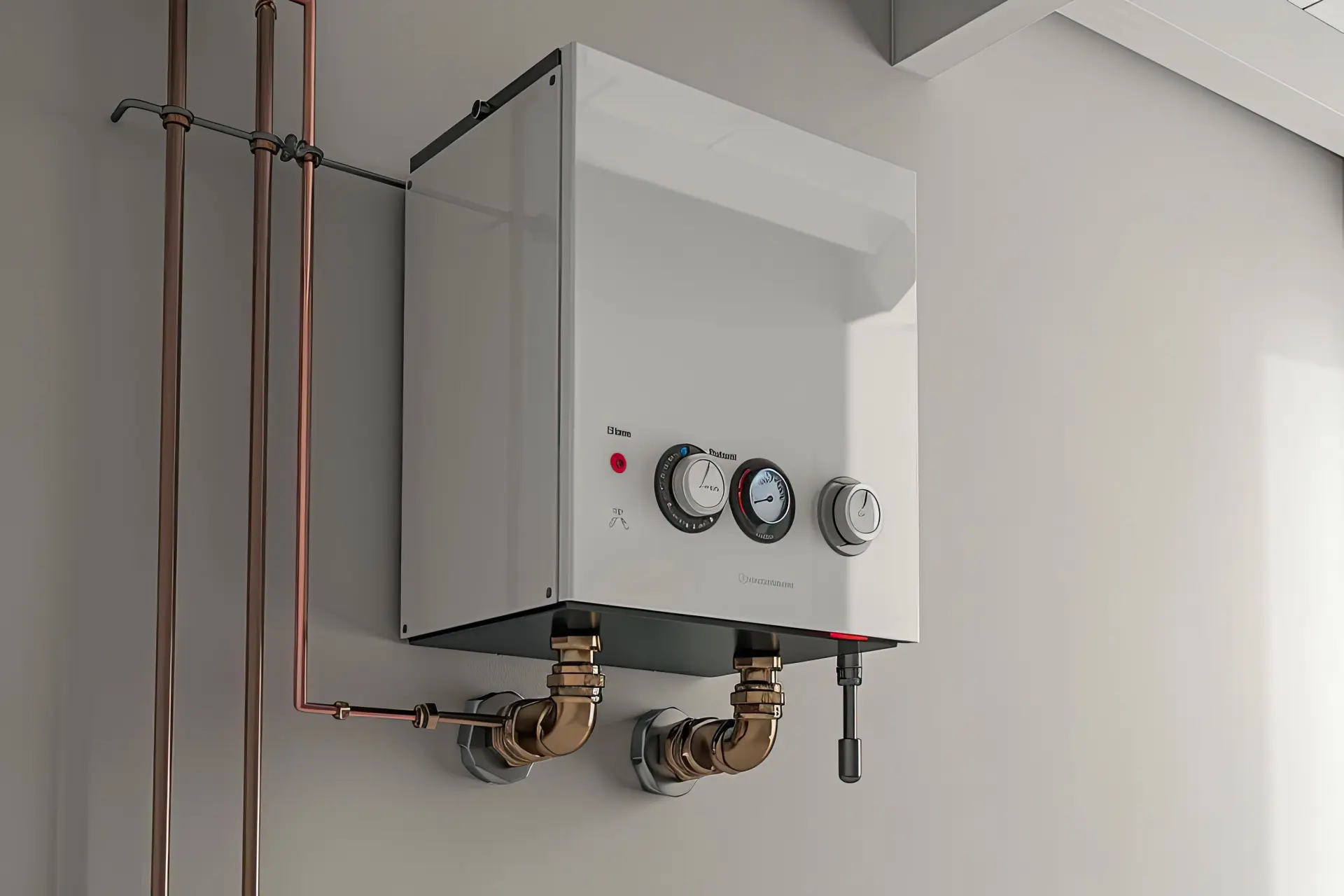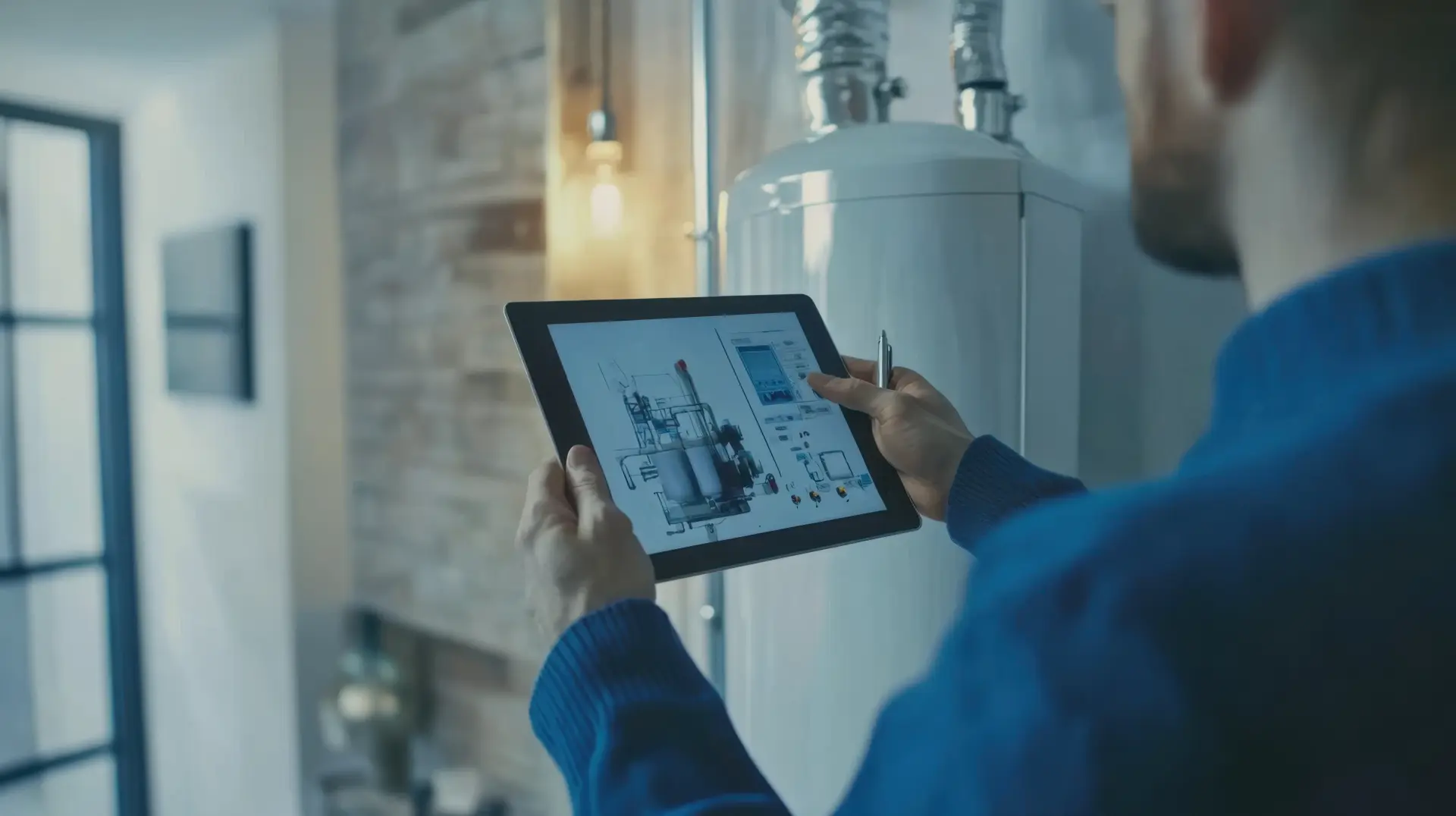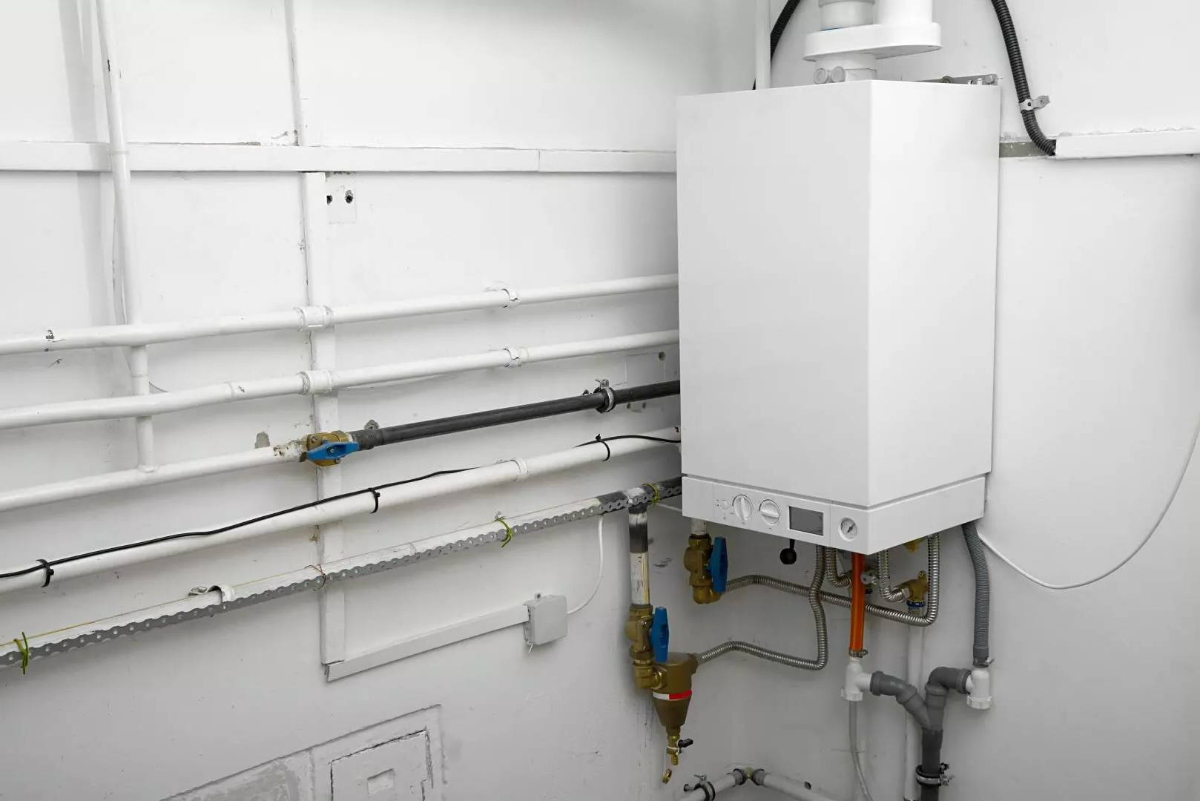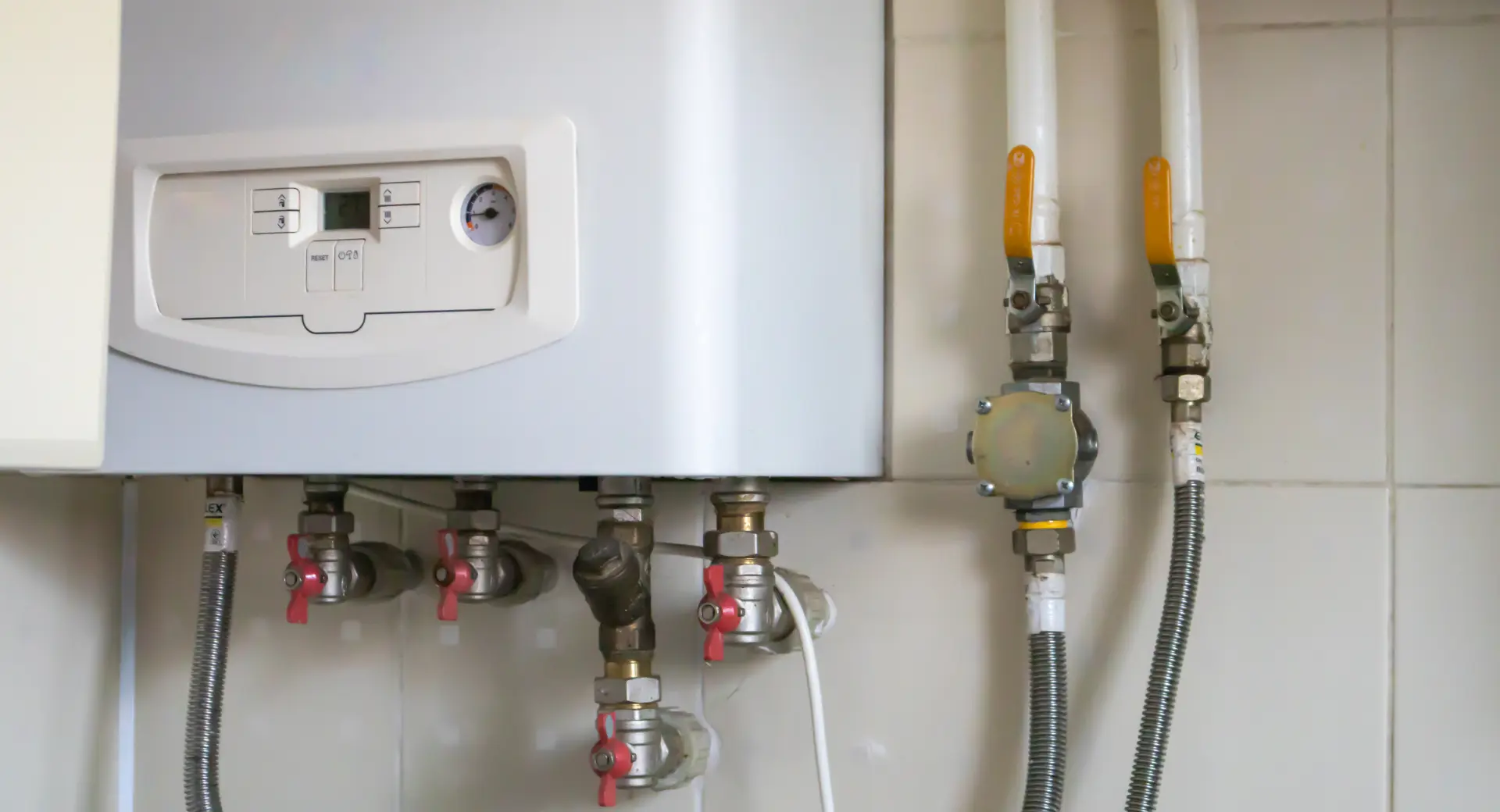Understanding the Different Types of Boilers
Choosing a boiler starts with knowing the main types and how they work. Each one suits different homes and hot water needs.A combi boiler will heat your water straight from the mains when you turn on a tap, so there is no hot water tank. It saves space and is a good choice for small homes or flats with one bathroom. The flow rate can drop if two showers run at the same time.
A system boiler works well with a hot water cylinder but does not need a loft tank. It provides strong water flow to multiple taps simultaneously, which suits homes with two or more bathrooms. You need space for the cylinder, and it uses a little energy to keep water hot.
A regular or heat-only boiler links to a hot water cylinder and a cold water tank in the loft. It suits older heating systems and homes with low water pressure or many radiators. It takes more space, and hot water can run out until the cylinder reheats.
Nearly all new gas boilers are condensing models. They thoroughly recover heat that would be wasted and use less fuel. This helps cut bills and lowers emissions. You still choose combi, system, or regular, but they will be condensed by design.
Electric boilers are compact and quiet. They can be useful where gas is not available or in small, well-insulated homes. Running costs can be higher, so check your tariff and property size.
Oil or LPG boilers are the best options for more rural homes without mains gas. They can heat larger properties well. You need a storage tank and frequent deliveries, which adds planning and space needs.
Assessing the Size and Needs of Your Property
Always start with the basics. Count the number of bedrooms, bathrooms, and radiators your household or property has. A small flat with one bathroom needs less heating power than a large house with several bathrooms and many radiators. Note when you use hot water. If two showers often run at the same time, you need a system that can keep up.
Think about your household. More people mean more hot water. Families who bathe and shower in the evening need a steady supply, while a couple may be fine with a smaller unit. Write down your busy times so you know the peak demand.
Check your insulation and windows. A well-insulated home will keep heat in for much longer, so you may not need to use a lot of boiler power. If your home feels draughty, plan to improve insulation first. This can let you choose a smaller and more efficient boiler.

Look closely at your water pressure if you can. Good mains pressure is best for supporting a combi boiler. Low pressure may suit a system or regular boiler with a hot water cylinder. You can ask an engineer to test the pressure at a tap to guide your choice.
Measure the space you have. A combi can fit in a kitchen cupboard. A system or regular boiler needs room for a cylinder and sometimes a loft tank. Make sure there is safe access for servicing and a clear space for the flue.
Lastly, consider the future. If you plan to carry out an extension, extra bathroom, or underfloor heating, choose a model that can handle the additional demand. If you want to add solar thermal later, check that the cylinder and controls are compatible.
Considering Fuel Types: Gas, Oil, or Electric
Mains gas is common in towns and cities. Gas boilers are usually the cheapest to run for most homes. They heat quickly and work well with modern controls. You will need a safe flue route and yearly servicing by a Gas Safe registered engineer. If your home is not on the gas grid, bottled gas is possible, but it brings extra delivery and storage needs.
Oil suits those with rural homes that may not have mains gas. It can heat large properties well and supply a strong hot water flow. You will need an outdoor tank with safe access for deliveries and space for the boiler. Prices for oil can change, so plan for that in your budget. An annual service is important to keep the burner clean and efficient.
Electric boilers are compact and quiet. They can be a good choice for small, well-insulated homes or flats with limited space. There is no fuel, no flue, and maintenance is simple. Electricity can cost more per unit than gas or oil, so check your tariff and expected use. A smart or off-peak tariff can help lower running costs.
Smart Features and Modern Technology
Modern boilers and controls can make your home warmer and your bills lower. A smart thermostat lets you set schedules, change the temperature from your phone, and turn the heating off when you go out. Some models available can learn your routine and warm the home only when needed. You can also connect to voice control, so you can ask for the heating to turn up without touching the thermostat.
Zoned heating lets you set different temperatures in different rooms. Smart radiator valves help you heat rooms you use and save energy in rooms you do not. Weather control can adjust the boiler output when it is milder outside, so the system does not work harder than it needs to.

Many boilers now support remote checks and clear alerts, and this means you'll get a warning if your system's pressure drops or a part is failing, which helps you fix small issues before they worsen. Software updates can add features and improve efficiency over time. When you select a brand-new boiler, look for controls that work with your phone, support zoned heating, and give useful alerts. This will make the system easier to use and help keep costs down.
Checking Installation and Maintenance Requirements
A safe, reliable boiler starts with proper installation. Always use a qualified engineer. For gas, choose a Gas Safe registered installer. For oil, look for an OFTEC technician. Ask for proof before work begins and agree on the scope, timeline, and final cost in writing.
Check that your home is ready for the new unit. The boiler needs enough space for airflow and future servicing. The flue must have a safe route to the outside. The condensate pipe should be protected from freezing. In hard water areas, ask about scale control to protect the heat exchanger.
Good system cleaning and setup make a big difference. Your installer should flush the system, add an inhibitor, and fit a magnetic filter if suitable. They should commission the boiler, set the correct output, balance the radiators, and record everything in the benchmark or handover pack. Keep this paperwork safe. It may be needed for the warranty.
Plan for plenty of care in the future. Most boilers around need at least one yearly service to stay efficient and keep the warranty valid for as long as possible. A service typically includes safety checks, pressure checks, cleaning key parts, and testing the flue. Smart controls may also need software updates and fresh batteries in sensors or valves.
RJC Plumbing And Heating can offer the best local plumbing and heating services for your homes or properties. Give our helpful team a call today, and we'll do all we can to repair your boilers, radiators, pipework, and various other heating systems.


